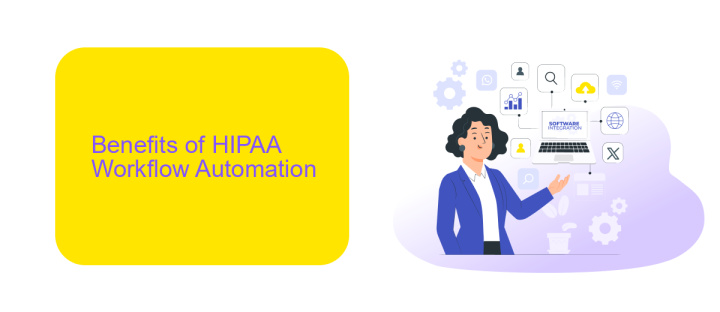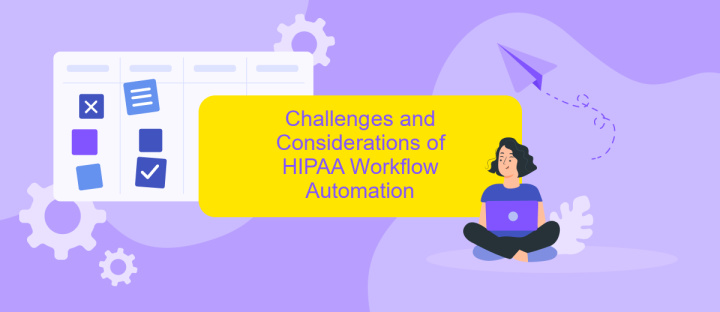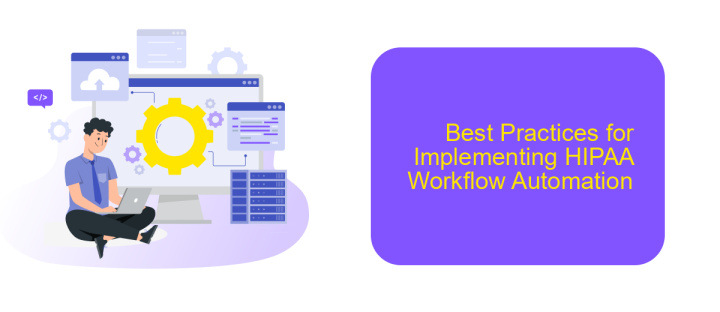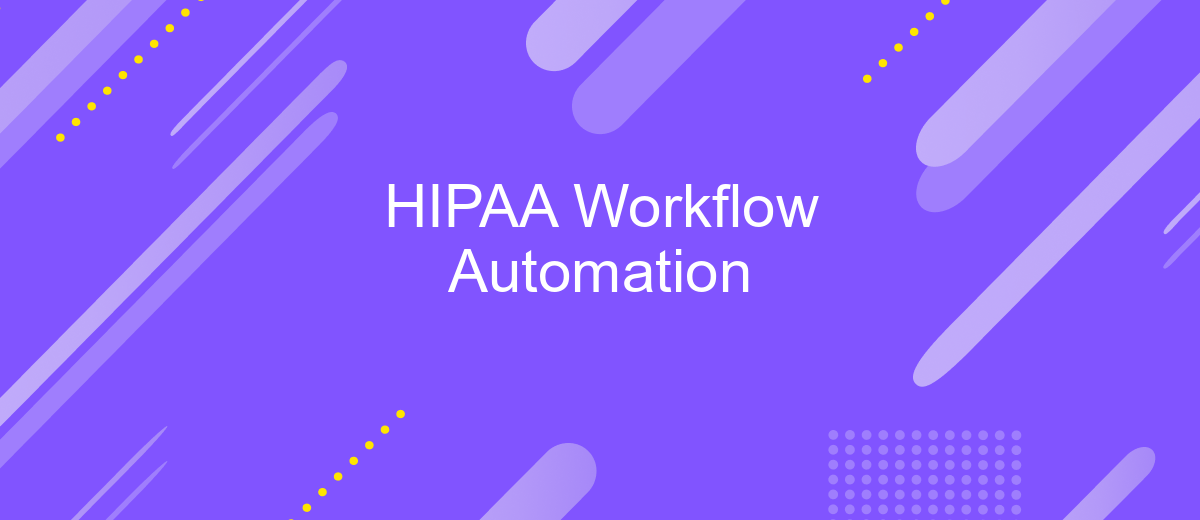HIPAA Workflow Automation
In today's rapidly evolving healthcare landscape, maintaining compliance with the Health Insurance Portability and Accountability Act (HIPAA) is more critical than ever. HIPAA workflow automation offers a robust solution to streamline processes, enhance data security, and minimize human error. This article explores the benefits, implementation strategies, and best practices for integrating HIPAA workflow automation into your healthcare operations.
Introduction to HIPAA Workflow Automation
HIPAA Workflow Automation is a crucial aspect for healthcare organizations aiming to enhance efficiency while ensuring compliance with the Health Insurance Portability and Accountability Act (HIPAA). By automating workflows, organizations can reduce manual errors, streamline operations, and maintain the confidentiality and security of patient data.
- Improved accuracy and reduced human error
- Enhanced data security and compliance
- Streamlined operations and increased efficiency
- Real-time monitoring and reporting
One of the key tools in achieving effective HIPAA workflow automation is the use of integration services like ApiX-Drive. ApiX-Drive allows seamless integration of various applications and systems, ensuring that data flows smoothly and securely between them. This not only enhances operational efficiency but also helps in maintaining strict HIPAA compliance by automating data handling processes.
Benefits of HIPAA Workflow Automation

Implementing HIPAA workflow automation offers numerous benefits for healthcare organizations. One of the primary advantages is enhanced compliance with HIPAA regulations. Automated workflows ensure that sensitive patient information is handled securely and consistently, minimizing the risk of human error and potential breaches. This not only protects patient privacy but also helps organizations avoid hefty fines and legal repercussions associated with non-compliance.
Another significant benefit is the improvement in operational efficiency. By automating routine tasks, healthcare providers can reduce administrative burdens, allowing staff to focus more on patient care. Additionally, services like ApiX-Drive can facilitate seamless integration of various healthcare systems, enabling smooth data transfer and synchronization. This integration capability ensures that all relevant information is easily accessible, leading to better decision-making and streamlined processes. Overall, HIPAA workflow automation contributes to a more efficient, compliant, and patient-centered healthcare environment.
Challenges and Considerations of HIPAA Workflow Automation

Automating HIPAA workflows presents several challenges and considerations that organizations must address to ensure compliance and efficiency. Firstly, ensuring data security and patient privacy is paramount. Automated systems must adhere to stringent encryption and access control measures to protect sensitive health information.
- Data Integration: Seamlessly integrating various health information systems can be complex. Tools like ApiX-Drive can facilitate these integrations, ensuring data flows smoothly between systems while maintaining compliance.
- Compliance Monitoring: Automated workflows must include mechanisms for continuous monitoring and auditing to ensure ongoing compliance with HIPAA regulations.
- Employee Training: Staff must be adequately trained to interact with automated systems and understand their role in maintaining compliance.
- System Reliability: Ensuring the reliability and uptime of automated systems is critical to avoid disruptions in patient care and data management.
Addressing these challenges requires a comprehensive approach that includes robust technology solutions, continuous monitoring, and ongoing staff education. By carefully considering these factors, organizations can successfully implement HIPAA workflow automation while maintaining compliance and improving operational efficiency.
Best Practices for Implementing HIPAA Workflow Automation

Implementing HIPAA workflow automation requires a strategic approach to ensure compliance and efficiency. The first step is to conduct a comprehensive assessment of your current workflows and identify areas where automation can improve accuracy and reduce manual errors. This assessment should involve key stakeholders to ensure all aspects of patient data handling are considered.
Next, choose the right tools and technologies that are HIPAA-compliant. It's crucial to select platforms that offer robust security features such as encryption, user authentication, and audit trails. ApiX-Drive, for instance, provides seamless integration capabilities that can help streamline data flow between different healthcare systems while maintaining compliance.
- Conduct regular audits to ensure ongoing compliance.
- Train staff on new automated workflows and HIPAA regulations.
- Implement role-based access controls to limit data exposure.
- Use secure communication channels for data transfer.
Finally, continuously monitor and update your automated workflows to adapt to new regulations and technological advancements. Regularly reviewing and refining your processes will help maintain compliance and improve overall efficiency in handling patient information.
Conclusion
In conclusion, automating HIPAA workflows offers significant benefits, including enhanced compliance, reduced human error, and improved operational efficiency. By leveraging advanced technologies, healthcare organizations can streamline their processes, ensuring that sensitive patient data is handled securely and in accordance with regulatory standards. Automating these workflows not only saves time but also allows healthcare professionals to focus more on patient care rather than administrative tasks.
Integrating automation tools like ApiX-Drive can further enhance the efficiency of HIPAA workflows. ApiX-Drive facilitates seamless integration between various healthcare systems, ensuring that data flows smoothly and securely across platforms. This integration capability is crucial for maintaining compliance and ensuring that all aspects of the workflow are synchronized. By adopting such automation solutions, healthcare organizations can achieve a higher level of operational excellence and maintain the trust of their patients.
FAQ
What is HIPAA Workflow Automation?
How does HIPAA Workflow Automation benefit healthcare providers?
What types of workflows can be automated under HIPAA guidelines?
How can I ensure that my automation process is HIPAA-compliant?
Can I integrate HIPAA-compliant automation tools with my existing systems?
Do you want to achieve your goals in business, career and life faster and better? Do it with ApiX-Drive – a tool that will remove a significant part of the routine from workflows and free up additional time to achieve your goals. Test the capabilities of Apix-Drive for free – see for yourself the effectiveness of the tool.

